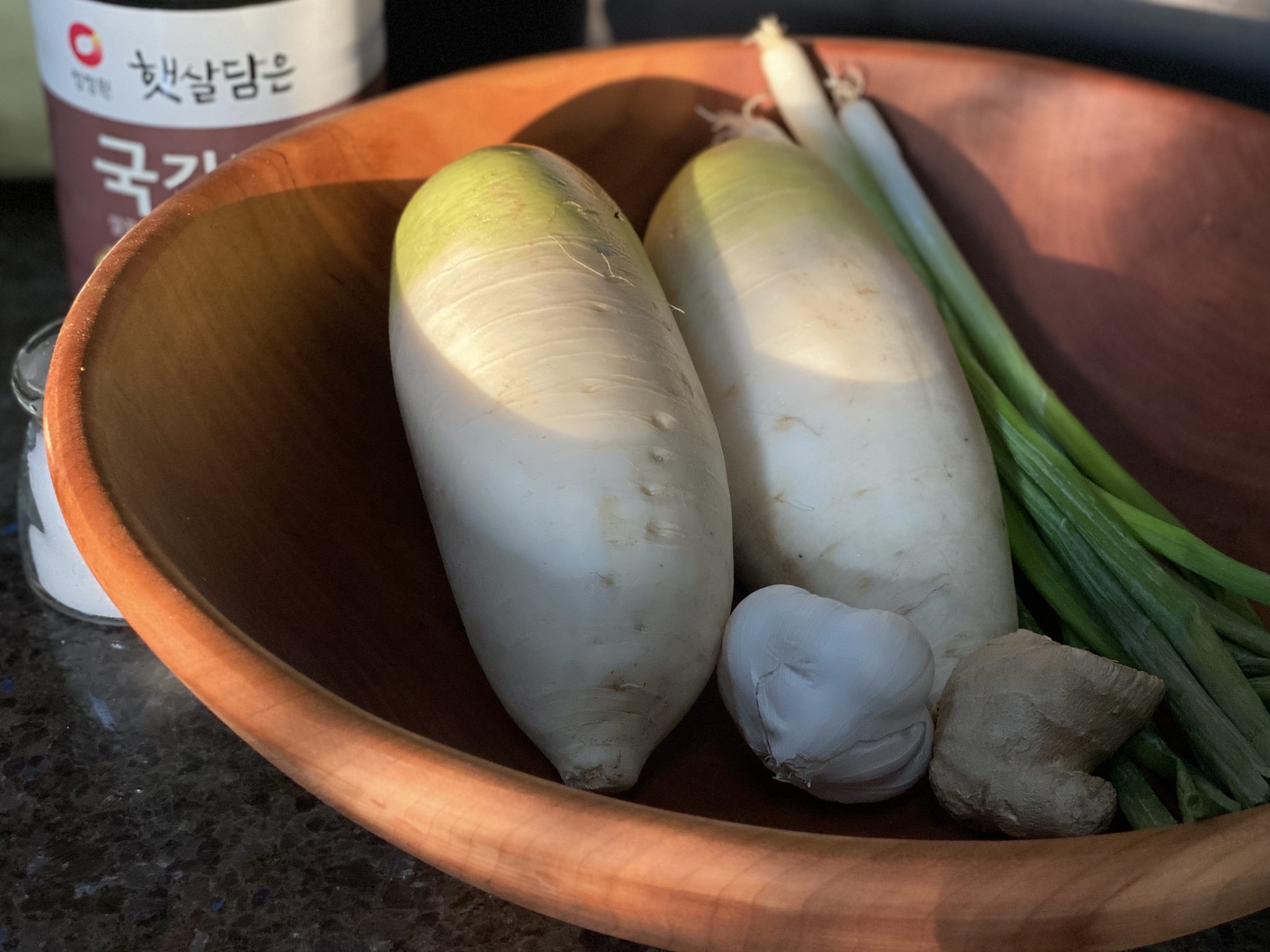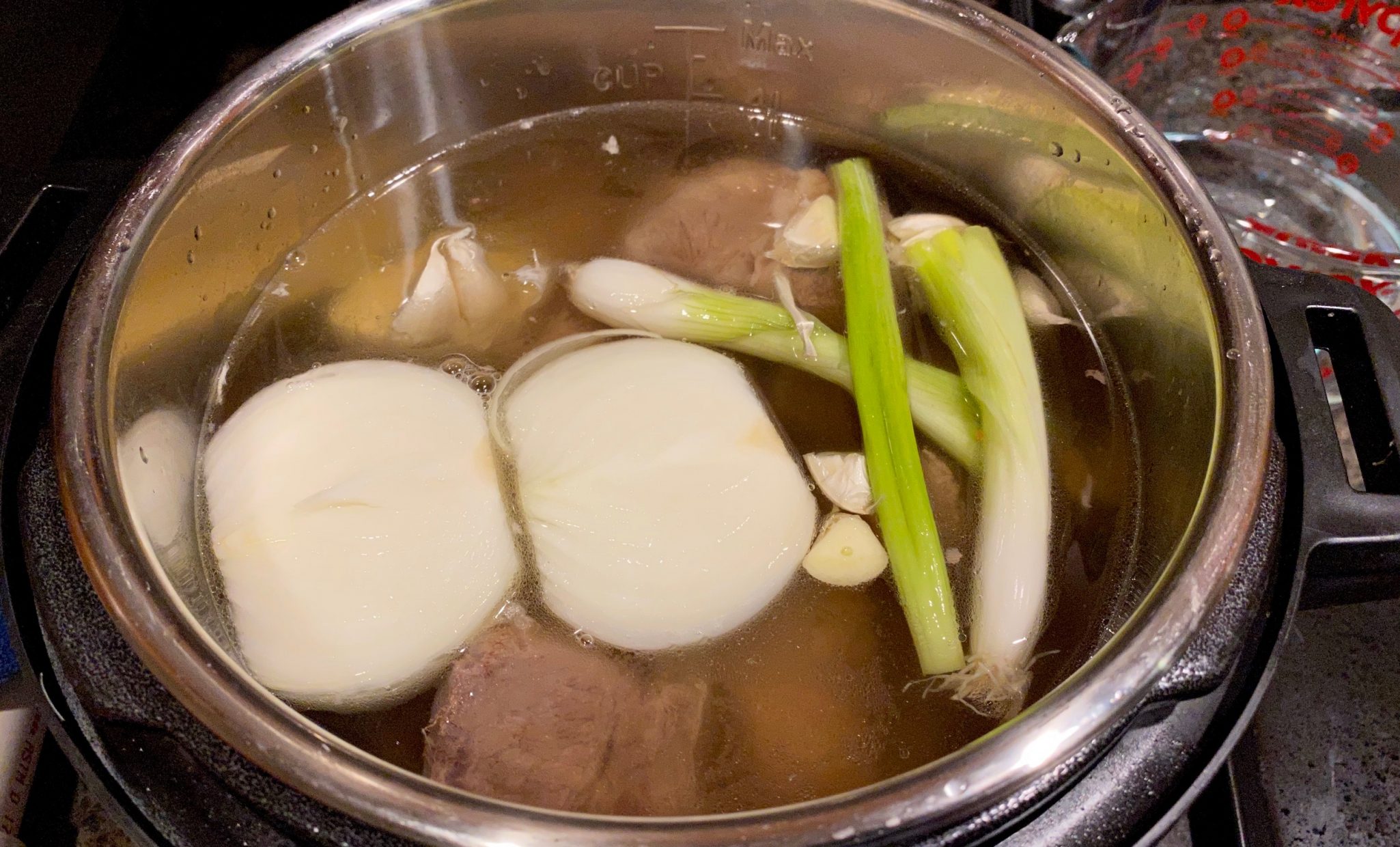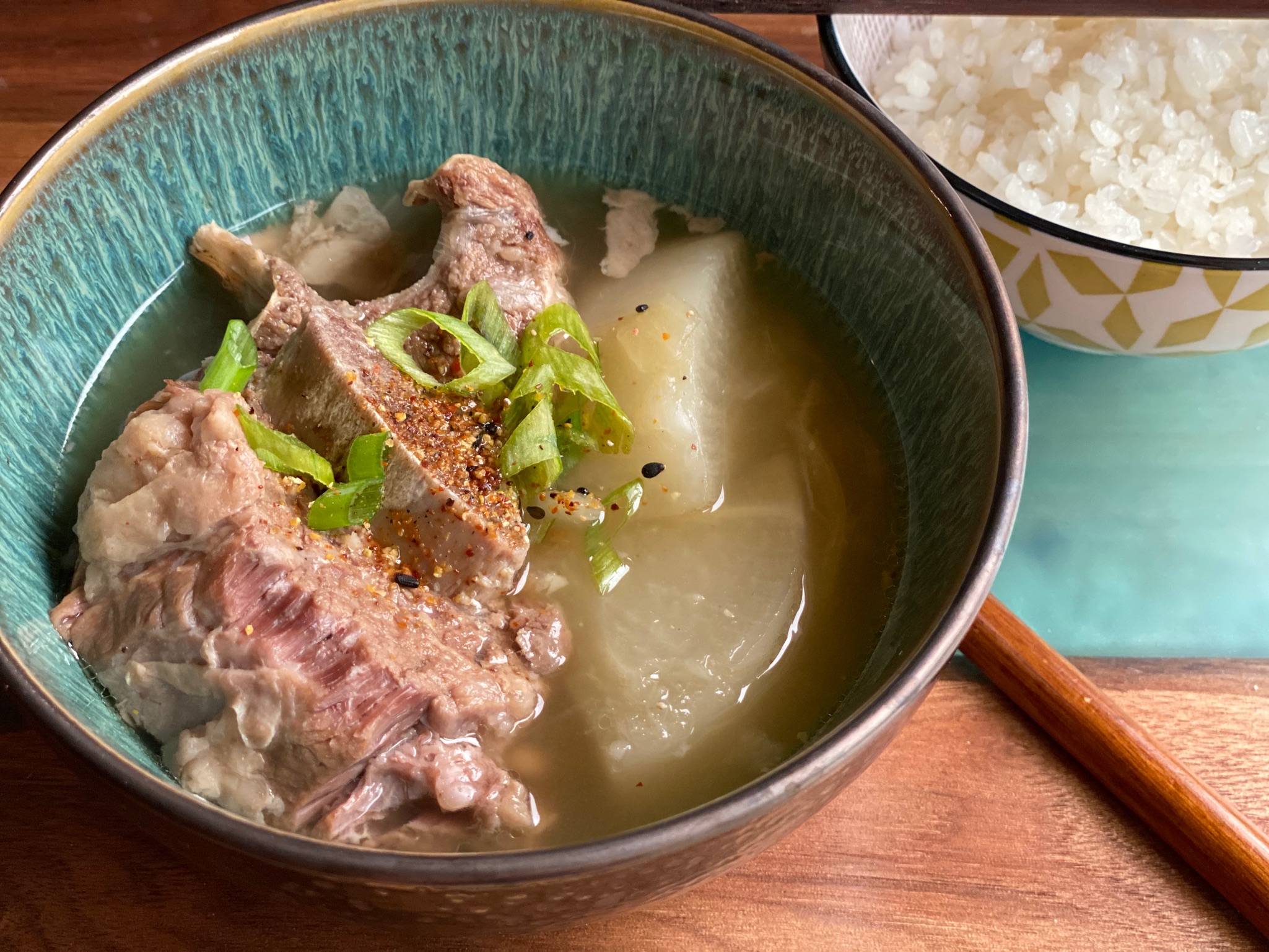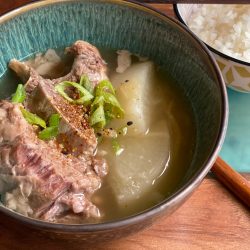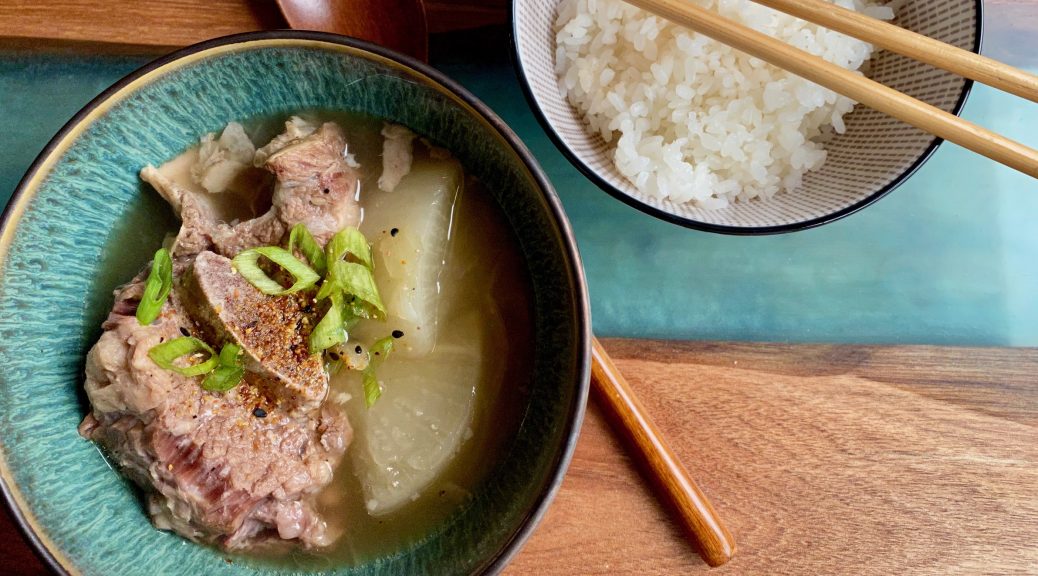
Galbitang-Korean Rib Soup-Finding Comfort In Souper Ways
The fires in California have cast an apocalyptic haze to our skyline. We actually hit the water for an early morning row, but coming off the water we noticed we were the only ones left at the reservoir. The pic confirmed, maybe rowing this morning wasn’t such a good idea. Bad for the body, good for the soul. My trade-off.
That being my biggest problem means I consider myself pretty fortunate during these unprecedented times. I try to do the little things, we order take-out from hole-in-the-walls. I buy from independent bookstores (for cookbooks, check out this post), talk to people, stay informed, advocate, and DONATE both time and money.
Another gut-punch
I started writing this post awhile ago already in a somber mood, not knowing that we would suffer more bad news, RBG had passed away. Inspirational, amazing, tenacious, persistent, brilliant, a fighter to the end. In this year of turmoil and devastating loss, we have yet more to endure. Icons and role models we have lost, John Lewis, Chadwick Boseman, and now Ruth Bader Ginsburg. Dedicated to their chosen paths, dignified, courageous, filled with conviction, compassion, and honor. Fighters…for all of us. I am devastated. All I can do is keep up the fight in whatever small way I can.
Times like these, I find myself longing for comfort food. Tonics to heal the heart. Foods that nourish and renew the soul. Dishes that say “hey, it’s okay, it’ll be better tomorrow”.
I decided to make a traditional Korean beef rib soup, Galbitang. Similar to some of my father’s soups, they usually require love and time. Lucky for me, I found a recipe for Galbitang from Korean Bapsang (a favorite site) made in an Instant Pot. Yay, delicious, comforting soup in a fraction of the time.
The star of this soup is the short rib of course 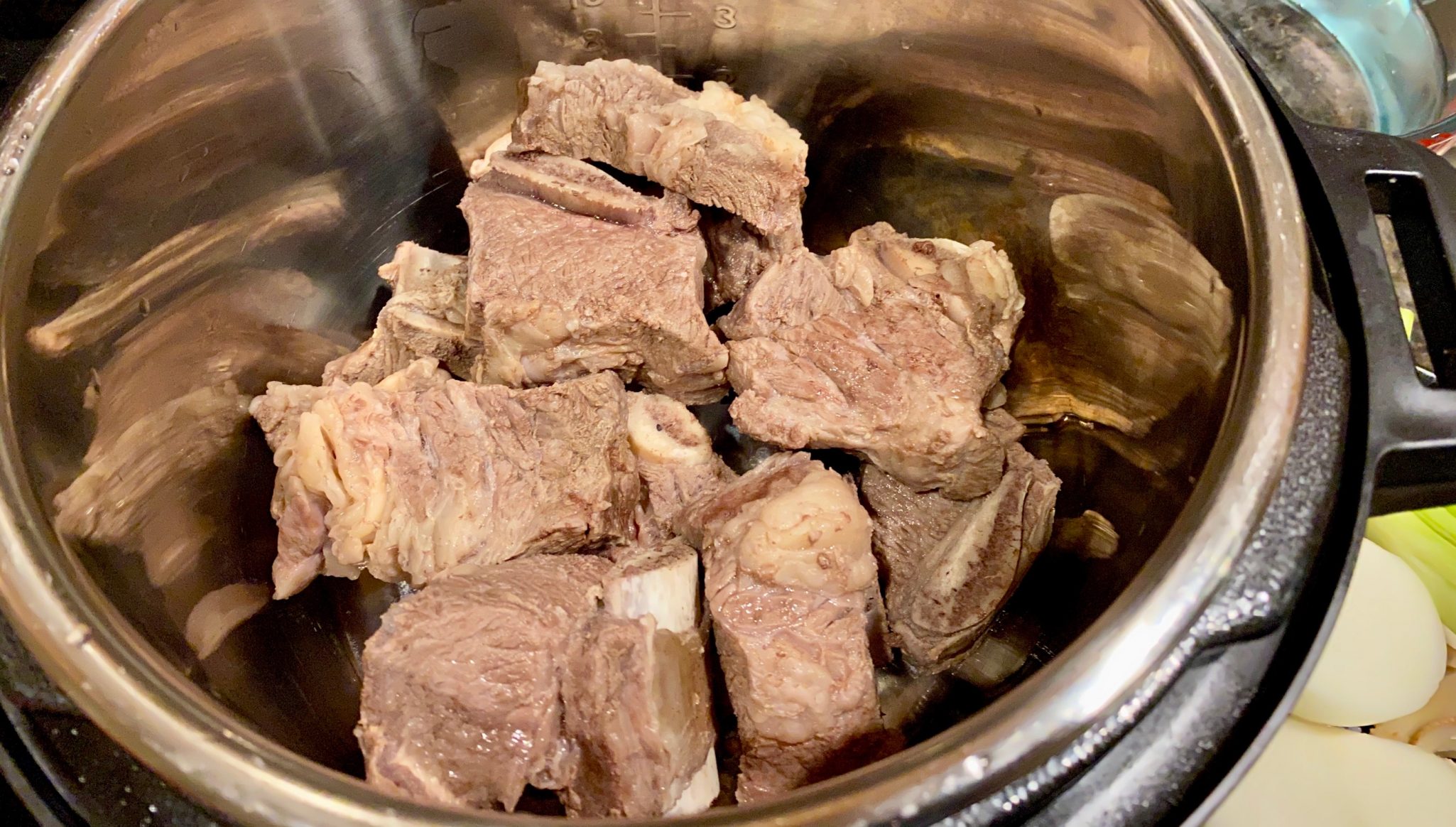
I used a combination of short rib and beef chuck, yummy. But really, the supporting cast is just as important-onion, ginger, garlic, Korean radish, and soup soy sauce that add layers of flavor.
Soup soy sauce is specifically made for soups and stews, lighter in color and saltier than regular soy sauce, it adds umami to the soup. In a pinch add a little bit of salt and regular soy sauce (which is too dark to use as a straight replacement). I like Chung Jung One or Sempio for soy sauce. Korean radish is sweeter and milder than regular radish, it’s delicious and refreshing. You can find both at any Korean market. The soy sauce can also be found online. I am a food gadget and product junkie…if you live near me and want to try the soup soy sauce-call me. I’ve got lots.
The first, quick run through the pressure cooker is to remove the “scuzz” from the meat, you know, the impurities and gunk, so you have a nice clear broth. But keep the liquid from that initial go-around. It can be strained and used as your cooking stock-flavor bump starter. Then dump everything in your Instant Pot, except the radish, set it for 35 minutes, and sit back and relax. A ten-minute natural pressure release and you are ready for the last step.
Use the saute function, add the cut radish to the soup and cook for approximately 10 minutes or until the radish looks translucent. Dunzo. Skim any oil off the top, garnish with green onions and serve immediately. Serve with rice or with nangmyeon (noodles). It will make you feel all warm and happy.
Instant Pot Galbitang (Beef Short Rib Soup)
Equipment
- 6 qt pressure cooker
Ingredients
- 3 to 4 pounds short ribs
- 1 medium onion cut into halves
- 2 large scallions white parts
- 8 plump garlic cloves or 1 whole bulb If using bulb, cut into halves crosswise
- 3 thin ginger slices 1-inch rounds
- 2 Tablespoons soup soy sauce
- salt and pepper
- 1 pound Korean radish cut into bite size pieces about 1.5-inch square, 1/3-inch thick
- 3 ounces starch noodles nangmyeon soaked in warm water for 30 minutes - optional
- 2 scallions finely chopped garnish
Instructions
- Trim off any thick layer of surface fat. In the pot, rinse the ribs with cold water a couple of times to remove impurities. Drain, and fill the pot with enough water to cover the ribs.
- Close the lid tightly. Press the “Manual” function and High Pressure, and using the “-” button, adjust the time to 2 minutes. Make sure the pressure switch is turned to “sealing”. When finished, carefully release the pressure.
- Pour cooking liquid through a fine strainer and reserve. Thoroughly rinse the ribs and clean the pot.
- Return the ribs to the pot, and add the onion, garlic, ginger and soup soy sauce. Add reserved cooking liquid and enough water to bring it to 10 cups, making sure the water level stays below the max line for the pot. Close the lid tightly. Pressure cook the ribs for 35 to 40 minutes, depending on how big the pieces of meat are. NPR 10 minutes.
- Open pot and remove meat and aromatic vegetables with a strainer. Skim off the fat.
- Put the ribs back in the pot along with the cut radish. Change the Instant Post setting to “Saute-normal”, and boil until the radish turns translucent, about 10 minutes-15 minutes. Add the optional noodles a couple of minutes before turning the Instant Pot off.
- Salt and pepper to taste. Remove any remaining fat by skimming surface or chill the soup and discard solidified fat and reheat gently. Garnish with chopped scallions and serve. Typical, my kids love putting their rice in the soup. Ono!
Notes
What a Difference a Week Makes
The wind shifted and the weather got better. I know the fires rage on as does the pandemic and our political travails, but this day was a good day to row. We all need a little respite from time to time. I am rejuvenated..back to text banking, phone banking, and stress relief baking.


